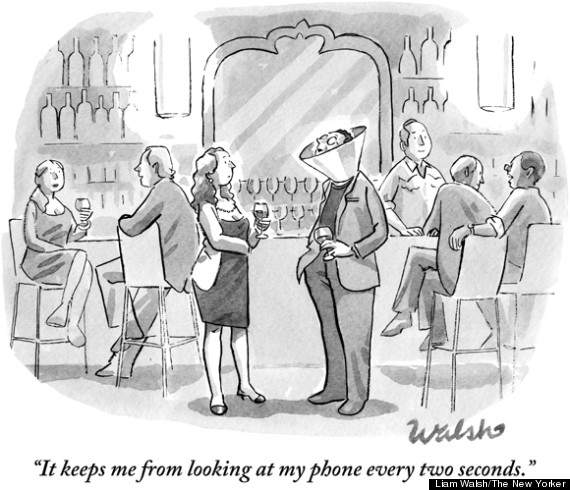What was the ad about?
In this ad, the audio commentary and the pictures presented all the wonderful foods that the viewer ended up eating at Thanksgiving, which then resulted in stomach aches and heartburn. And, presto, Alka-Seltzer to the rescue!
While watching the commercial, my reflexive thought was simple: if the problems came from overeating, then why not simply advise the viewer to eat less?
Of course, as I have come to realize, to consume less is not American. Instead, the American way is to consume more, and then when problems develop savvy entrepreneurs provide solutions to facilitate further consumption.
Today's exhibit along those lines? Apparently more and more people have trouble falling asleep in this consumer capital of the world. No, it is not from food, though certainly contributes its own problems. This sleep hassle is thanks to the gazillion electronic gadgets that seemingly surround us every minute of the day and on which our eyes are fixated. From television screens to smartphones, screens of all types. What's the link? It is from the blue part of the spectrum:
Blue wavelengths—which are beneficial during daylight hours because they boost attention, reaction times, and mood—seem to be the most disruptive at night. And the proliferation of electronics with screens, as well as energy-efficient lighting, is increasing our exposure to blue wavelengths, especially after sundown.You want more detail?
Recent studies have shown that short-wavelength [blue] light has a greater effect on phase shifting the circadian clock and on melatonin suppression. In 2014 my colleagues and I examined the effects of reading on a light-emitting device compared with reading a printed book. Participants who read on light-emitting devices took longer to fall asleep, had less REM sleep [the phase when we dream] and had higher alertness before bedtime [than those people who read printed books]. We also found that after an eight-hour sleep episode, those who read on the light-emitting device were sleepier and took longer to wake up. In the study all participants had to stop reading and turn off the lights at exactly 10 P.M., even if they did not feel sleepy. At home, I would expect people do not have the motivation to turn off their devices and go to bed, so they would stay up longer and experience even more circadian delay and shorter sleep times. The effects in the real world could actually be even greater.Got it? Let's recap. Light influences our sleep pattern. Especially the blue light. As animals, normally we would begin to prepare for sleep after sundown. But, on top of the lights all around, there is the blue wavelength from the gadgets that end up screwing up our sleep (and the internal clock that influences the working of organs in our bodies.)
The solution would be simple, right? No gadgets into the night hours. Especially when there is no ambient lighting, as in looking at the glowing screen in a dark room. But, nope, it is un-American to propose such solutions and, worse, to implement it.
Hence, an American solution to an American problem:
Along with various other health-focused apps, the new version of Apple's mobile operating system, iOS 9.3, will include the Night Shift feature. This app will use the device's clock and geolocation to determine what time the sun sets and will automatically shift the phone's display color to the warmer, or redder, end of the light spectrum until the following morning.This is merely.the latest in the consumption culture. Do not even dare to suggest that we put those devices down; to borrow from Charlton "NRA" Heston, people'll give their screens when you pry them from their cold, dead hands ;)
